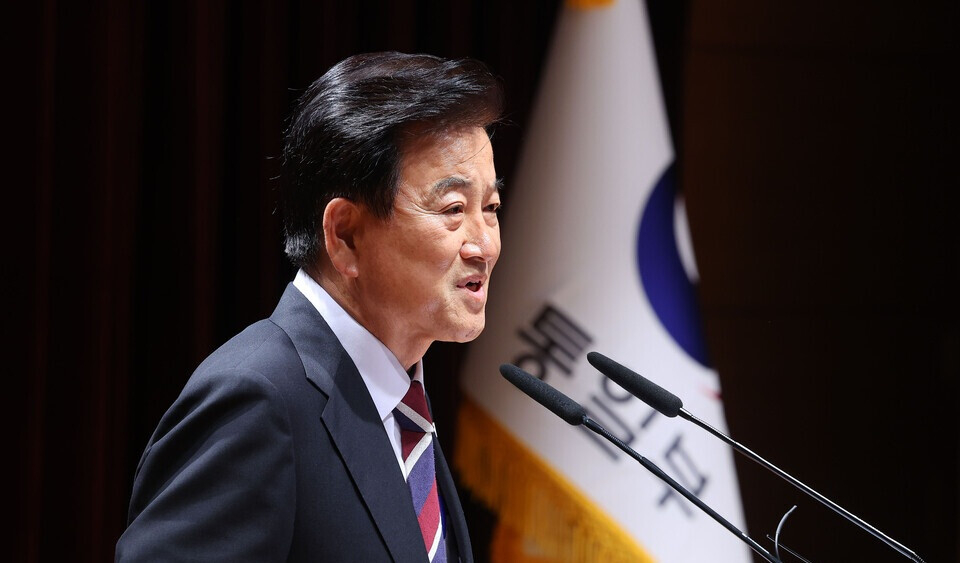
SEOUL—South Korea's Ministry of Unification (MOU) announced a sweeping organizational restructuring on October 14, 2025, signaling a significant shift in its approach to inter-Korean relations. The move, which includes the revival of the Inter-Korean Dialogue Headquarters and a substantial increase in its workforce, reflects the current Lee Jae Myung administration's policy goal of emphasizing dialogue, exchange, and cooperation to pursue "peaceful coexistence and shared growth on the Korean Peninsula."
The reorganization is set to restore functions that were downsized or abolished under the previous Yoon Suk Yeol administration, which had focused on a hardline stance and human rights issues. The draft revision to the Enforcement Decree of the 'Ministry of Unification and its Affiliated Organizations' is scheduled for public review on October 15, with finalization expected after Cabinet approval.
Restoration of Dialogue and Exchange Functions
At the core of the reform is the reinstatement of the Inter-Korean Dialogue Headquarters, a specialized body responsible for inter-Korean talks and liaison activities. This unit was abolished in 2023 under the former administration and merged with three other exchange and cooperation departments into the Inter-Korean Relations Management Corps. The MOU explained that the revival is intended to "promote the resumption, institutionalization, and regularization of inter-Korean dialogue."
In a further effort to boost cross-border engagement, the ministry is re-establishing the Peace and Exchange Bureau (formerly a section that had been downsized). This bureau will be tasked with formulating and implementing the future vision for a "peace economy" on the peninsula, resuming economic cooperation, addressing sanctions issues, fostering border area cooperation, and tackling humanitarian issues, including joint responses to the climate crisis. The Peace and Exchange Bureau will comprise the Peace Economy Planning Officer and six divisions.
Scaling Back Human Rights Focus
In a notable change of priorities, the ministry is abolishing the Human Rights and Humanitarian Affairs Office—which the previous administration had expanded—and reorganizing it into the Social and Cultural Cooperation Bureau. This new bureau will manage civilian exchanges, issues concerning separated families, abductees, detainees, and prisoners of war, as well as the peaceful and cooperative promotion of human rights, and support for the resettlement and self-reliance of North Korean defectors. The shift suggests a preference for a more cooperative and less accusatory approach to addressing North Korean human rights concerns.
Organizational and Personnel Expansion
The restructuring also involves a significant increase in the ministry’s capacity. The total workforce is set to increase by 67 positions, from 533 to 600 personnel, essentially recovering about 80% of the 81 positions cut during the Yoon administration. The ministry stated that this expansion is vital for "restoring dialogue and cooperation functions and normalizing the operations of the Ministry of Unification."
Other key changes include:
Integration of Policy Functions: The current Unification Cooperation Bureau will be dissolved and integrated into the Unification Policy Office, which will focus on establishing strategies for peace-building, planning mid-to-long-term unification policies, and promoting public diplomacy for peace and unification.
Name Changes: The Information Analysis Bureau will revert to its previous name, the Current Situation Analysis Bureau, and the National Institute for Unification Education will be renamed the National Institute for Peace, Unification, and Democracy Education.
New Advisory Body: A new unit, the Korean Peninsula Policy Listening Team, will be established directly under the Unification Minister to build a foundation for peaceful coexistence and promote sustainable Korean Peninsula policies based on national consensus, ensuring public participation in cross-border exchanges and peace-building efforts.
Unification Minister Chung Dong-young affirmed that the comprehensive reorganization aims to "accelerate the implementation of the national policy agenda of peaceful coexistence and joint growth on the Korean Peninsula," marking a clear pivot toward engagement and the restoration of inter-Korean communication channels.
[Copyright (c) Global Economic Times. All Rights Reserved.]




























